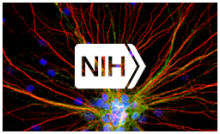
Last month, members of the NIH BRAIN Initiative Neuroethics Working Group (NEWG) and Multi-Council Working Group (MCWG) discussed research-related care needs for trial participants, emerging ethics themes, the annual BRAIN Initiative meeting, and more.
On August 23, 2022, the BRAIN Initiative Neuroethics Working Group (NEWG) held its 14th meeting. The NEWG ensures that neuroethics is fully integrated into the BRAIN Initiative as new tools and technologies emerge.
Dr. John Ngai, Director of the NIH BRAIN Initiative, thanked Dr. Hank Greely, NEWG Co-Chair, for his service and welcomed Dr. Nita Farahany, Professor at Duke University, as the new Co-Chair. He also welcomed Dr. Caroline Montojo, President and CEO of the Dana Foundation, as a new NEWG member. Dr. Ngai updated the group on neuroethics-focused sessions at the 8th Annual BRAIN Initiative Meeting and two recent congressional neuroscience caucus briefings, which focused on the importance of brain donation and neuroethics. Next, Dr. Montojo gave a presentation about the foundation’s efforts to advance neuroscience that benefits society. She highlighted programs aimed to expand neuroscience education and support next generation leaders in neuroscience. The NEWG recognized the role of the Dana Foundation as a catalyst for change and the importance of getting more neuroscientists to recognize the value of neuroethics in their research and in society.
Dr. Saskia Hendriks, Neuroethics Consultant at the National Institute of Neurological Disorders and Stroke (NINDS) and faculty in the NIH Bioethics Department, presented findings from a portfolio scan of BRAIN grants awarded in fiscal year 2021. Then, Dr. Nina Hsu, Science Committee Specialist for the NEWG and interim co-lead of the BRAIN Neuroethics Program, summarized a workshop on continuing trial responsibilities, which focused on addressing the care needs of participants in neural device clinical trials, after the trial ends. There were several takeaways from the event that will inform the next steps. Among other realizations, participants concluded that facilitating these research-related care needs impacts many individuals and professional stakeholders, so collaboration among researchers, grantee institutions, device manufacturers, and others will be key to improving patient care. For a detailed meeting synopsis, please view the NEWG meeting summary(pdf, 210 KB) and archived videocast.
The next day, the Multi-Council Working Group (MCWG) held its 23rd meeting to discuss BRAIN updates and the annual BRAIN Initiative meeting. Dr. Ngai thanked Dr. Greely, at large MCWG and NEWG member, and Dr. Frances Jensen, Eunice Kennedy Shriver National Institute of Child Health and Human Development representative, for their many years of service on the MCWG. He also thanked Dr. Katrina Gwinn-Hardy for her service and welcomed Dr. David McMullen as the new Food and Drug Administration federal ex officio on the MCWG.
Dr. Ngai updated the group on the Plan for Enhancing Diverse Perspectives (PEDP), emphasizing its success and recent incorporation into other NIH notices of funding opportunities outside of BRAIN. He also highlighted scientific advancements made possible by transformative projects outlined in The BRAIN Initiative® 2.0: From Cells to Circuits, Toward Cures report. For instance, the BRAIN Initiative Cell Census Network (BICCN) recently led to the development of a massive, open-source molecular dataset with transcriptomic, epigenetic, and neuropathological data from over 1.2 million brain cells from 84 human donors. You can learn more about this resource on the Seattle Alzheimer’s Disease Brain Cell Atlas consortium’s website. Lastly, Dr. Ngai mentioned new and reissued BRAIN funding opportunities for next-generation non-invasive imaging, quantifying behavior, and others.
Next, Dr. Samantha White, Chief of the NINDS Scientific and Public Engagement branch, debriefed the group on the 8th Annual BRAIN Initiative Meeting. This year’s theme was, “Open Science, New Tools.” The two-day virtual meeting was a great success, hosting over 2600 attendees across scientific disciplines, job sectors, and career stages, worldwide. Based on a post-meeting survey, attendees appreciated the option to view content on-demand (available now until June 2023). Despite being fully virtual, the poster sessions were lively and well-received by attendees, allowing presenters to interact with others via video, chat, and email. The MCWG suggested tracking user engagement with on-demand content over time and considered ways to include people with brain disorders in future meetings. For more details, please view the MCWG meeting summary(pdf, 206 KB) and videocast.
Want to stay updated on the latest BRAIN Initiative activities? Tune into the next NEWG and MCWG meetings via NIH Videocast on January 24 and 25, 2023!
